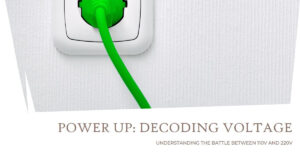Smartphones and laptops have become indispensable devices in our daily lives. However, when it comes to charging, it’s essential to understand the compatibility between different charging devices.
Phone chargers are designed to meet the power requirements of smartphones, which generally have lower power demands compared to laptops. Laptops require higher voltage and current levels to support their larger screens, more powerful processors, and extensive computing capabilities.
This article will explore whether a phone charger can effectively charge a laptop and highlight the importance of using the correct charger.
Understanding Power Requirements
Laptops and smartphones have different power specifications due to their varying functionalities and battery capacities.
Laptops typically require higher voltage and current levels to support their larger screens, more powerful processors, and extensive computing capabilities.
Smartphones, on the other hand, have lower power requirements due to their smaller screens and less power-hungry components.
Charging Methods for Laptops
Laptops can be charged through various methods, including AC power adapters and USB-C or USB-A chargers.
AC power adapters are the traditional and most common method of charging laptops. USB-C chargers, which provide faster charging speeds and compatibility with newer laptops, are becoming increasingly popular.
USB-A chargers, although commonly used for charging smartphones, may not provide sufficient power for charging laptops.
Compatibility of Phone Chargers with Laptops
While some phone chargers might physically fit into a laptop’s charging port, compatibility issues can arise due to differences in power output and charging protocols.
USB-C chargers, known for their versatility, can charge certain laptops if they provide enough power. However, USB-A chargers are generally not suitable for charging laptops due to their lower power output.
While a phone charger may physically fit into a laptop’s charging port, it often lacks the necessary power output to effectively charge the laptop’s battery.
Using a phone charger to charge a laptop can pose risks such as overheating and potential damage to both the charger and the laptop. It is crucial to prioritize safety and compatibility by using the correct charger that meets the laptop’s power requirements.
Factors to Consider
When contemplating charging a laptop with a phone charger, several factors should be considered. Firstly, the power output of the phone charger must match or exceed the laptop’s power requirements.
Secondly, it is crucial to check the compatibility of the laptop and charger in terms of voltage and current levels.
Lastly, considering the compatibility of charging protocols, such as Power Delivery (PD) for USB-C chargers, ensures optimal charging efficiency.
Read also my article: Unveiling the Dangers: Can Overvoltage Damage Your Phone Charger?
Risks and Limitations
Using a phone charger to charge a laptop can pose certain risks and limitations. One significant concern is overheating, as phone chargers might not be designed to handle the higher power demands of laptops.
Additionally, using an incompatible charger could potentially damage both the charger and the laptop, leading to reduced performance or even permanent hardware failure.
Best Practices for Charging a Laptop with a Phone Charger
If you find yourself in a situation where you need to charge your laptop with a phone charger, follow these best practices.
Firstly, ensure compatibility by checking the charger’s power output and the laptop’s power requirements.
Secondly, monitor the charging process closely, as overheating could occur. Lastly, avoid using low-quality or third-party chargers that may not meet safety standards or provide the necessary power levels.
Alternative Solutions
If using a phone charger is not feasible or convenient, alternative solutions are available. Portable power banks, specifically designed to charge laptops, offer a portable and reliable power source.
Universal laptop chargers, capable of providing power to various laptop models, are another option worth considering.
Conclusion
While a phone charger may be suitable for charging smartphones, it is generally not recommended for charging laptops due to differences in power requirements.
Using an incompatible charger can lead to potential risks and damage to both the charger and the laptop. It is important to use the correct charger, follow best practices, and consider alternative solutions to ensure safe and efficient charging for your laptop. Always prioritize compatibility and safety when charging your devices

